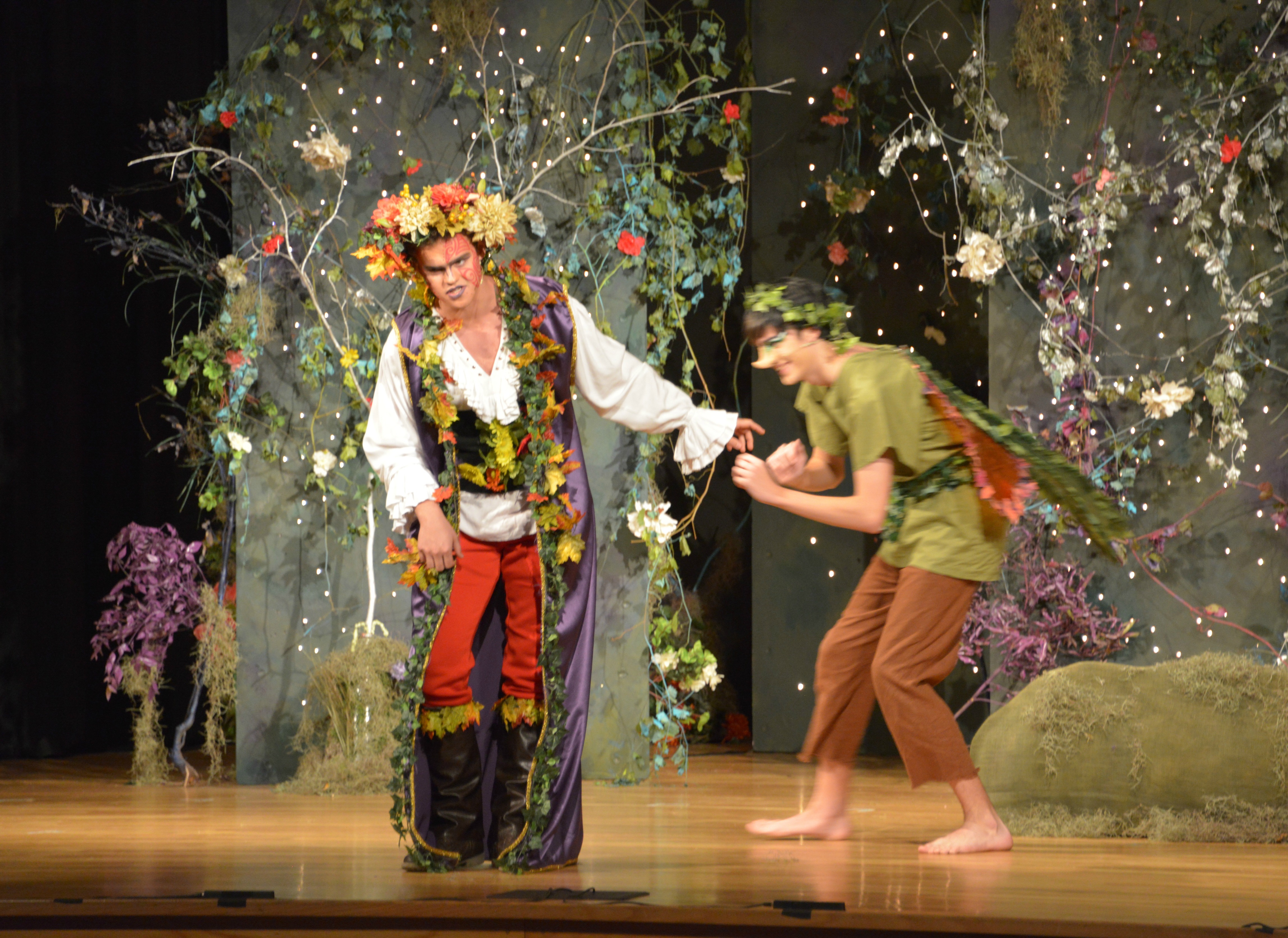In Eph 4:3, Paul says the Ephesians ought to be “eager to maintain the unity of the Spirit in the bond of peace.” While we know Paul wrote this letter specifically to the church at Ephesus, and with a specific context in mind, we also know that if Paul’s exhortation was true for Christians at Ephesus, it is true for us at Trinitas. Maintaining the unity of the Spirit in the bond of peace is no easy task, though, no matter where it is being attempted because we’re all sinners, especially talented at offending each other, hurting each other’s feelings, and generally getting in each other’s way. But when the place you’re attempting to maintain the unity of the Spirit in the bond of peace is a school where 200 people are living in community each day, it is a difficult task to say the least.
In Pursuit of Truth, Goodness, and Beauty on the Stage
With drama underway, it seems like a fitting place to unpack the pursuit of Truth, Goodness, and Beauty. On the stage students are called to imagine life from another perspective. Students wrestle with not only what someone says, but how they say it and then why. Actors humble themselves and explore a nature not their own. In this putting on of a character, students are able to actively pursue the true, the good, and the beautiful.
Topics: Blog Posts, School Life, Truth, Goodness, and Beauty
When you come to Trinitas, what jumps right out at you is the fact that it is a different sort of school than your common public or private school, and even different from most private Christian schools you will have been acquainted with in your life. That isn’t to say that there aren’t other schools like Trinitas in the world, and it isn’t even to say that Trinitas is the best school that you will ever have been acquainted with. It is different, and that should be obvious. One of the main catalysts for that difference is the pursuit of truth, goodness, and beauty in our school life, not only in the classroom, but also in the hallways, at the lockers, on the ball field, and in short, everywhere the school has any presence as an institution.
Topics: Blog Posts, Classical Education, Truth, Goodness, and Beauty
When teachers and administrators from other schools visit Trinitas, one of the things they love is that all of our students sing. Music is not an elective at Trinitas; singing is not optional. We sing to start the day, we sing in music class, we sing in other classes, we sing in choir, and we sing to end the day. It is not a spontaneous thing—though song does occasionally erupt unannounced—it is intentional. We work at it. Even those of us who do not naturally sing well work at it (even harder in fact).
Topics: Blog Posts, School Life, Musical Training
Well, it’s that time of year again. Thousands of people—no, millions of people—woke up on New Year’s Day and resolved either to stop a bad habit or to start a good one. Some probably resolved to do both. According to various sources on the ever accurate and reliable internet, some of the most common resolutions Americans make on any given New Year’s Day are to lose weight, get fit, quit smoking, get organized, spend more time with family, get out of debt, or learn something new.
Topics: Blog Posts, Christian Living
At this time in the history of the world, when our calendar is controlled largely by a capitalist machine of our own making (read WalMart, Amazon, etc.), perhaps we Christians should buck the system a little, remind the secular establishment that we’re still here and still seeing things just a little differently than they. That’s one reason we talk about the season of Advent at Trinitas.
Topics: Blog Posts, School Life, History
A pretty famous guy once said that the goal of a good education is not to make one think right, but to make one act right. I’m paraphrasing, of course. I can’t recall the exact quote or the name of the fellow who uttered it, but the gist of it is hard to forget. Now, we all know that education does not save—only Jesus can do that—but education can and does form virtue in students when it is done well by parents and teachers; and virtuous students, after all, are students who act right. Last week I asserted that a good education teaches “a way of being.” Another way of saying it is to say that a good education forms virtue in students so that they not only think right, but they also act right. And what better way to form virtue than by reading old books?
Topics: Blog Posts, School Life, Classical Education, True Education, Reading
Perhaps we should ponder the meaning of the word “education” before we try to discern what a good education is. The word is derived from the Latin infinitive educāre or educere or a combination of the two. Either way, the word carries the meaning “to lead” or even “to lead out.” Understood this way, it is easy to see that any good education must lead the learner to something. Anything that claims to be education but is passive in its application, perhaps allowing the learner to find his own way, isn’t exactly education. To be educated then is to necessarily be led out of ignorance and into a particular knowledge, a particular way of understanding that produces wisdom. Such is a proper classical Christian education.
Topics: Blog Posts, Classical Education, Christian Education, True Education, Christian Living

.png)

.jpg)
.jpg)



.jpg)

